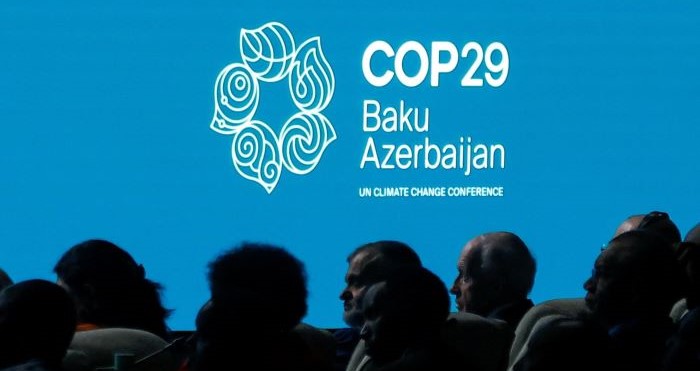(4 Minutes Read)
The scarcity of accessible capital for climate mitigation and adaptation will derail Africa’s climate action roadmap. Investment in meteorological services and early warning systems to build adaptive capacity, and boost resilience at local, national, and regional levels is urgently needed to ward off natural disasters. Any failure to put adequate mechanisms in place will affect 118 million extremely poor people.
As a global platform for climate action of 200 countries with diverse interests and resources, the Conference of the Parties (COPs) often witnesses hope, resentment, disappointment, and compromise. The recently concluded COP 29 in Baku once again exposed the complex dynamics of climate negotiations particularly regarding the critical issue of climate finance.
The Baku conference was dubbed ‘climate finance COP” to prioritize financial commitments to support developing countries in tackling climate change. However, it failed to meet the expectations that left the African nations and the broader Global South disillusioned. Despite the USD 1.3 trillion annual fund’s goal by 2035, only USD 300 billion was designated for grants and low-interest loans annually for green transition and climate adoption in the new climate finance goal (NCQG).Experts point out that when calculated against a conservative inflation rate of 5%, the net present value of USD 300 billion in climate finance would be only USD 175 billion.
For Africa, which bears a disproportionate burden of climate change, this is an unfair deal. Africa’s share of global greenhouse gas emissions, at just 3.8%, is in sharp contrast to 23% of China, 19% of the US, and 13% of the European Union. Yet, the continent is the worst affected by climate change-related weather patterns. The temperature in Africa is rising faster than the rest of the global average. Rising temperatures, unpredictable rainfall, and extreme weather events exacerbate Africa’s exposure to food insecurity, water scarcity, displacement, and overall socioeconomic development. A new report from the World Meteorological Organization (WMO), reveals that African countries are losing 2–5 per cent of Gross Domestic Product (GDP) due to climate change. These poor economies are forced to shell out 9 per cent of their budgets to deal with the climate crisis.
Africa is already struggling under a heavy debt burden. Its debt service in 2024 alone is estimated to be USD 163 billion. According to climate experts, the continent already faces a gap between USD 200-400 billion dollars per year by 2030. To address climate impact, it will have to divert resources from development goals, perpetuating cycles of poverty and underdevelopment.
The scarcity of accessible capital for climate mitigation and adaptation will derail Africa’s climate action roadmap. Investment in meteorological services and early warning systems to build adaptive capacity, and boost resilience at local, national, and regional levels is urgently needed to ward off natural disasters. Any failure to put adequate mechanisms in place will affect 118 million extremely poor people.
Energy poverty is widespread in Africa. Insufficient financial and technological support from richer countries will constrain Africa’s transition to cleaner energy. The lack of a clear strategy for the operationalization and funding mechanisms of the Loss and Damage Fund at COP 29 is yet another challenge for Africa.
One silver lining of COP29 is the agreement on international carbon market standards under Article 6.4 of the Paris Agreement. This opens avenues for Africa to internationally trade CO2 certificates with heavy emitters and capitalize on its low per capita emissions. Investments can be sought in activities like reforestation, protecting carbon sinks, and transitioning to clean energy. However, such investments should be strictly monitored as critics warn that most carbon offset initiatives are just greenwashing scams. Africa should also explore the potential of the private sector to step in to fill the financing gap and harness new technologies.
At a time of geopolitical uncertainty, Forums like COP have a crucial role in keeping countries united. The COP29, critics say, has shown a clear lack of climate leadership. Even after three decades of celebrated climate agreements, greenhouse gas emissions, and global temperatures continue to rise. This has raised doubts about the effectiveness of the process. Is COP also failing like many other multilateral systems? There is a pressing need for a fresh global approach to climate finance reflecting the realities faced by vulnerable regions like Africa.
With the likelihood of the US taking a back seat in future climate talks under Trump, who will become the climate leader? speculations pervade that China could slip into the driver’s seat. Currently, China, the world’s biggest greenhouse gas emitter is one of the largest contributors to climate finance.
With Africa’s growing economic proximity to China, it should wield better climate support from the Asian giant. But the grappling question is- will China be ready to take on the role and turn its strengths on clean technology into leadership?





